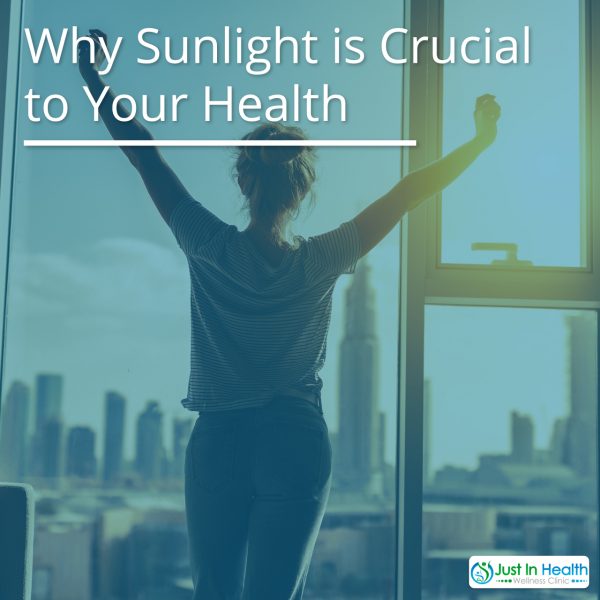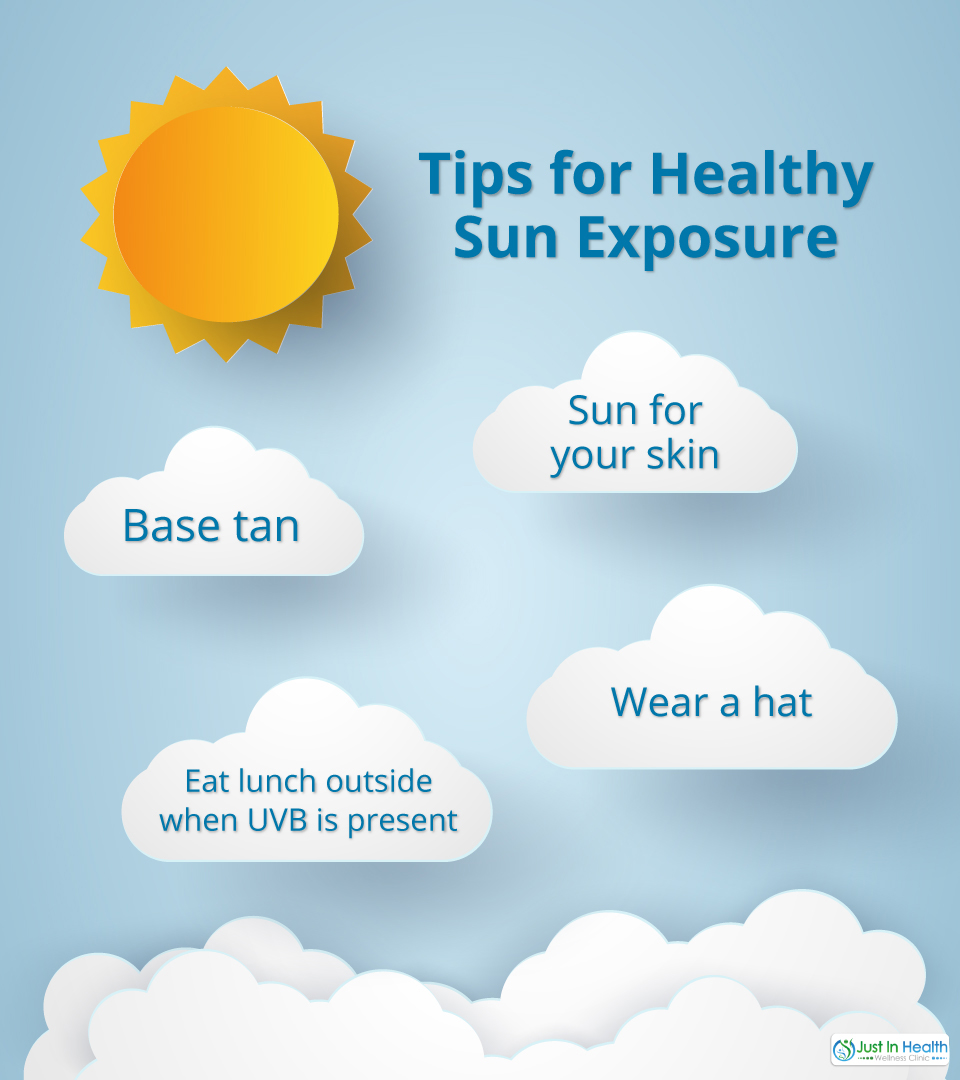

By Dr. Justin Marchegiani
What if I told you that one of the most important nutrients for optimal health is one that you have always been told to avoid?
I’m talking about the sun.
We’ve been told to avoid getting too much sun and to always apply sunscreen, or suffer the consequence of skin cancer. Well, folks, science is telling us quite the opposite.
We evolved under the sun, we have photoreceptors in our eyes and in our skin, and the literal color of our skin changed to adapt to our environment. (As humans migrated further from the equator, our skin lightened to adapt to receiving less UV light) (1). One way or another, human beings are powered by light. Whether you’re getting it first hand from the sun or eating plants and animals that come from the sun, we wouldn’t be alive without it.
What does getting adequate sunlight and vitamin D do, besides lowering inflammation, enhancing your immune system, and protecting your brain from aging? Studies show a link between the amount of vitamin D you get from sun exposure and rates of cancer: Getting sun is anti-cancer!
Vitamin D, the “sunshine vitamin,” is actually a hormone precursor. When our skin is exposed to sunlight and the ultraviolet (UV) spectrum, we create vitamin D. Since vitamin D is so broadly engaged in different processes throughout the body (so far it has been linked to the activation of hundreds if not thousands of genes), its many properties are still only being discovered.
Today we are going to look at UVA and UVB light. (1)
Click here to learn how to take your health to the next level!
The results are in: the sun does not cause skin cancer. Skin cancer is linked to sunburns, not sun exposure. In fact, the vitamin D produced by your skin after UVB exposure kills melanoma (skin cancer)! The vitamin D levels at diagnosis of a melanoma patient have a role in determining the outcome. (2)
Get this: People who work indoors are at a much higher risk for melanoma than those who work outside. (3)
It’s not the sun that causes skin cancer; it’s how you experience the sun. Those who work outdoor jobs get consistent, full spectrum ultraviolet light. If you work an office job, chances are you don’t see much of the sun; especially not the UVB light which is present around noontime.
As we know, UVB is absent at sunrise and sunset: the times you would be outside to go to work and come home. Additionally, windows filter out UVB, so indoor workers really aren’t getting this crucial Ultraviolet B.
Catching rays are protective against many types of cancer. Vitamin D deficiency is linked to prostate cancer, breast cancer, leukemia, gastrointestinal cancer, bladder cancer, and more. As far as skin cancer goes, there’s actually an inverse relationship between outside workers and melanoma. This means that the more frequently you are exposed to sun, the less likely you are to develop skin (and other) cancers.
Sun exposure may increase your lifespan. According to one study, “The mortality rate amongst avoiders of sun exposure was approximately twofold higher compared with the highest sun exposure group.” This study provides ground-breaking evidence that avoiding sun exposure increases your risk for all-cause mortality. (4)
We have RNA in our cells, which are basically little messengers. Our skin cells have some ‘empty messengers’ called non-coding RNA, which are activated by the sun. When these skin cells produce vitamin D as a result of sun exposure, these non-coding RNA go into protective mode, reducing carcinogenicity and suppressing tumor formation. This is suspected to be a strategy skin cells employ to protect themselves against ultraviolet-induced non-melanoma skin cancer. (5)
Here’s another crazy statistic for you: In a study done on sun exposure and mortality, it was observed that those with high sun exposure habits had longer lifespans and were less likely to die of cardiovascular disease. Additionally, nonsmokers who avoided the sun had a similar life expectancy to smokers in the highest sun exposure group. This indicates that “avoidance of sun exposure is a risk factor for death of a similar magnitude as smoking”! (6)

The only way to know your vitamin D levels is through a Vitamin D blood test.
Still, have questions about sun exposure? Click here to talk to a professional!